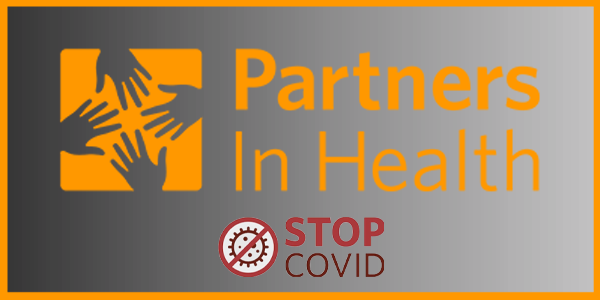Why Ethicists Advising in Crises Should Take a SEAT (guest post by Per Sandin)
“For academic philosophers, being solution-oriented can be a challenge.”
The following is a guest post* by Per Sandin, Senior Lecturer in Bioethics and Environmental Ethics at the Swedish University of Agricultural Sciences, on what philosophers can learn from other advisors about how to help during crises.
Why Ethicists Advising in Crises Should Take a SEAT
by Per Sandin
Philosophers and lawyers have a lot in common: We use overlapping concepts that we refer to with the same terms—think ‘responsibility’, ‘obligation’, or ‘justification’. The best in both professions excel in developing sharp analytical skills and an acute awareness of language and how definitions affect arguments and conclusions. And yes, lawyers and philosophers alike are sometimes accused of engaging in sophistry.
Both lawyers and philosophers are also called upon to provide advice to decision-makers in times of crisis. Ethics advice in the current COVID-19 pandemic is a case in point. James Wilson recently described how this can require other skills and virtues than the ones academic philosophers usually cultivate. We need to be fast rather than thorough, and we must ensure that our advice reaches the right people at the right time. Some philosophers are very good at this. Among them are certain medical ethicists working closely with clinicians. But many of us could definitely be better at it, and here we can learn from lawyers—at least some of them.
In particular, some lessons learned from research carried out with leaders and lawyers at the Federal Emergency Management Agency (FEMA) in the United Stated might prove helpful here.
Obviously, such collaborations between leaders and advisers require efforts from both parties, and it affects the way work is structured by an organization. For the leader to bring in the adviser as early as possible is certainly one success factor, as is helping the adviser to understand the bigger picture and the leader’s intentions.
However, here let me just focus on some individual performance criteria for FEMA lawyers, which have also been promoted for officers in similar positions in other jurisdictions. They were derived from interviews with experienced leaders and lawyers at FEMA, and with some modifications, they apply also to philosophers giving advice in crises. The FEMA criteria are captured in the acronym SALT: Advisers should be Solution-oriented, Articulate, Legally sufficient, and Timely. The acronym neatly captures some of the characteristics that James Wilson values.
For academic philosophers, being solution-oriented can be a challenge. One of our prime skills is to pick holes in arguments and find why a proposed solution is not tenable. This is valuable, but we also must be able to argue for a certain solution and say that out of a number of alternatives available, one of them is better than the others, or point out that some alternatives have morally unacceptable implications, without necessarily accepting the others as free from objections. We must patch more than pick holes. And our focus must be on the actual rather than the ideal.
Being articulate implies expressing our arguments in a way that is understandable to the non-expert. It means avoiding jargon, of course, but it is also a caution against using some of the argumentative devices that work well in articles and seminar rooms but that can misfire badly outside the philosophy profession. I am thinking, for instance, of far-fetched and occasionally morbid thought experiments. Crisis advising is not the place for trolley problems or experience machines—even though insights gained from pondering such scenarios can be extremely relevant for the advice we give.
The timeliness criterion is emphasized in James Wilson’s blog post—advice must be given at a time when the recipient is in a position to receive it, and incorporate it into decision-making. It also means giving it fast enough, even if we can be reasonably certain that our advice might be different if we had more time to develop it.
This leads us to the criterion of legal sufficiency, which is largely necessitated by time constraints—in Wilson’s words, ’thinking that is good enough’. Just as lawyers might not be able to provide advice that is watertight and not subject to criticism afterwards, ethicists will have to settle for avoiding the grossest errors. And this will have to be enough. As one FEMA manager expressed it: ‘Don’t keep me out of court, keep me out of jail’.
For philosophers advising on ethics, we can replace the ‘L’ in the SALT criteria with an ‘E’, where ‘E’ stands for ‘Ethically sufficient,’ and with a little reordering we get ‘Solution-oriented, Ethically sufficient, Articulate, and Timely’—the SEAT criteria.
Ethical sufficiency might well be the hardest criterion to meet. It means we will have to settle for a position that we know is flawed, and much more so than something we lay out in an academic article or book developed over a longer period. We might afterwards—perhaps justly—be criticized for our mistakes or flawed judgments, and ethical stress is a real possibility. But as Wilson notes, ´the only alternative to rushed and imperfect ethical advice is even worse ethical advice drawn up without engagement of academic ethics specialists, or failing to provide ethical guidance at all’.
We might both do a better job, and feel better about it, if we realize what is required of us, and we can learn from the successful legal advisers to leaders in crises. The SEAT criteria is a starting point. So, when philosophers give advice on ethics in crises, we should aim for being SEAT-ed. However, being SEAT-ed does not mean engaging in armchair inquiry. Quite the contrary.
References
Stern, E., Saathoff, G. and Kieserman, B. Advice in crisis: Leaders , lawyers and the art of disaster management. In D.G. Kamien (ed.), The McGraw-Hill Homeland Security Handbook, 2nd ed. (2012), 711-737.




Researchers in psychological science are suggesting a model based on NASA’s rocketry-readiness system when it comes to giving COVID-19 recommendations; see the recent preprint titled “Psychological Science is Not Yet a Crisis-Ready Discipline”
https://psyarxiv.com/whds4